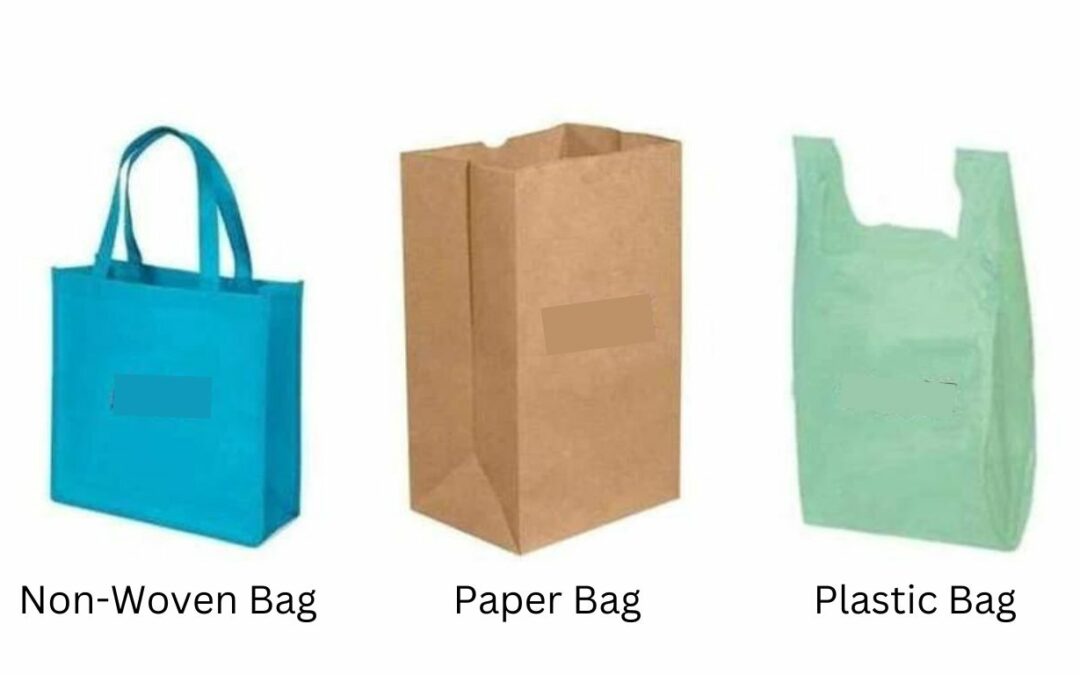There is no definitive answer to whether paper bags or plastic bags are greener or more environmentally friendly. The debate on whether plastic or paper bags are greener has been here for decades and is complicated indeed, as both the two options have their own environmental impacts. There are also good arguments on both sides and it depends on which factors you consider. Here below we list a summary of some key factors to consider:
Production and manufacturing
In terms of production and manufacturing, plastic bags have a smaller environmental impact. They produce fewer greenhouse gas emissions and consume less energy and water to make compared to paper bags. Plastic bags also generate less solid waste during the production process.
Waste and disposal
When it comes to waste and disposal, paper bags have a smaller impact. Paper bags are biodegradable and compostable, unlike most plastic bags. Plastic bags tend to jam up waste management equipment and they take up more space in landfills. Plastic bags can also harm animals that ingest them.
Reusability
In terms of reusability, plastic bags have an advantage and more multiple-use options. Plastic bags can be reused as trash bags, packing material, etc. Paper bags are less durable and not as reusable for other purposes. However, paper bags are more easily recycled than plastic bags.
Renewable resources
Paper bags have an advantage here as they are made from renewable materials, trees in this case. Plastic bags are made from petroleum, a non-renewable resource. However, trees as a resource need to be sustainably managed by reforesting at the same rate or faster than harvesting.
Recycling
In terms of recycling, paper bags have a higher recycling rate and their recycling process is simpler. They can be recycled more times and they generate fewer pollutants when recycled compared to plastic bags. However, recycling still requires energy and resources. Reducing usage of both materials is the greenest option.
So as you can see, there are good arguments to be made on both sides. The greener and more environmentally friendly choice really depends on which factors you consider the most important. The ideal solution is to reduce usage of both paper and plastic bags as much as possible. Reusing shopping bags as many times as possible is the greenest approach.
Weight
Plastic bags are lighter than paper bags, so they require less energy to transport. This will save the overall cost of the vendor and consume less resources from the earth.
Decomposition
Plastic bags take up more space in landfills because they don’t biodegrade easily. They can take up to 1000 years to break down and they release methane gas, a potent greenhouse gas, in landfills. Paper bags break down much faster in landfill conditions.
Littering impact
Plastic bags have a comparatively higher littering impact than the paper bag. They are easily blown by wind and end up littering streets, clogging waterways and harming wildlife. Paper bags are less likely to become litter due to their weight and biodegradability.
Specific usage
The choice between paper vs plastic bags also depends on the intended use. For hot or damp items like produce or meats, plastic bags may be better to prevent leaks. For lighter or bulkier items, paper or reusable bags make more sense.
Many governments are taking action by taxing or banning certain bag types. Some countries have banned very thin plastic bags, while others have imposed taxes on plastic bag use. A few have banned plastic bags altogether. More local regulations are focusing on promoting reusable bag use. Consumer choice is also driving the trend toward more sustainable options. Using reusable shopping bags is becoming more mainstream as people become aware of the environmental impacts of disposable bags. This can significantly reduce impacts, regardless of paper vs plastic.
Ultimately, the greenest option depends on factors such as the bag’s production process, disposal, and reuse. In general, reducing consumption and reusing bags, regardless of the material, will have the most significant environmental benefit. Additionally, many people opt for reusable cotton, cloth or non-woven bags as the more sustainable choice in the long run though those bags may still incur high resources and energy during production.
In summary, while there are many factors to consider, reducing usage of all disposable bags and transitioning to reusable bags remains the most environmentally sustainable option overall. Governments, businesses and consumers all play a role in moving toward more sustainable bagging choices.
